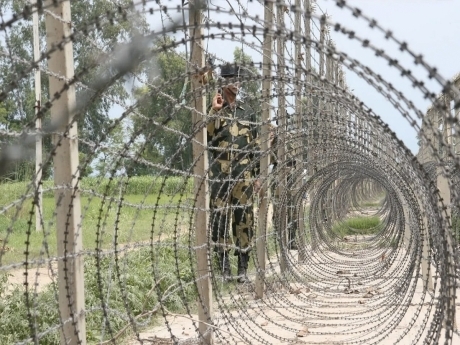News
You are here
All eyes on Kashmir

April 28, 2025
The long-standing tensions between India and Pakistan have further deteriorated after an attack in Pahalgam, Indian Occupied Kashmir, where armed militants opened fire, taking the lives of 26 Indian citizens. A group by the name of The Resistance Front (TRF), which is recognized as connected to the Lashkar-e-Taiba based in Pakistan, initially issued a statement claiming responsibility for the attack. However, they have since denied the statement, calling it a fabrication by the Indian state.
Regardless, in response, the Indian state has begun a series of retaliatory measures against Pakistan, including closing off the largest portion of the India-Pakistan border as well as a suspension of the Indus Water treaty, a cross-border water-sharing agreement that has been in place since 1960s. Pakistan has issued a similar response, declaring the suspension of the water treaty to be an ‘act of war’. The Indus Waters Treaty is responsible for delivering 80% of waters to Pakistani farms, and its suspension would be disastrous for Pakistani farmers and the food economy.
While Prime Minister Shehbaz Sheriff has mentioned that Pakistan is ready for a ‘neutral investigation’ into the attacks, Prime Minister Modi has declared that India will pursue the militants to ‘the end of the Earth’.
Yet, such pursuits by the Indian state have always only meant massive human-rights violations and brutalities for the Kashmiri people.
Most densely militarized zone in the world
For decades now, Kashmir has remained the most densely militarized zone in the world, with hundreds of thousands of Indian army and security personnel permanently stationed in the area, and with a ratio of one military person for every 30 Kashmiris. This military occupation of Kashmir has only intensified following the Modi government’s abrogation of Article 370 of the Indian Constitution, which had provided a special and autonomous status to Kashmir within the Indian Union until 2019.
Today, India remains the largest importer of military and intelligence equipment from Israel, and weapons ‘tested’ in occupied Palestine are stationed in occupied Kashmir. The strengthening of ties between India and Israel over the past decades, especially under the Modi regime, is rooted in an Islamophobic consensus between the two states. As we go to press, the corporate media in India has begun calling for a ‘final solution’, ‘revenge’, and an ‘Israel-style response’ to the Pahalgam attacks, showing how anti-Kashmiri vitriol is deeply entrenched within the language of the Indian ruling class.
No tourism on occupied lands
The ‘developmentalist’ turn in Indian occupation, especially following the abrogation of article 370, has meant that large portions of Kashmiri economy have now been incrementally rendered dependent on mainland India. A large portion of this dependency is built through the tourism sector, where mainland Indian citizens routinely visit the occupied territories for leisure and sight-seeing. The victims of the Pahalgam attacks were predominantly tourists.
While much of the discourse in India is focussed on the condemnation of the attack on civilians, there also needs to be a discussion on the politics of tourism in occupied territories. Despite what the Modi government claims, there can be no ‘business-as-usual’ in Kashmir until and unless there is a genuine movement towards the right to self-determination of Kashmiri people. What that self-determination looks like, whether it is connected to a larger Indian union or as an independent state, is a decision that must be left to the Kashmiri people themselves and must be taken in the absence of military intimidations or violent pressures.
Until an earnest effort is made in that direction, ‘tourism’ in Kashmir is always disaster tourism, where the beauties of the valley are exoticized to cover up the suffering of Kashmiri people. Such tourisms will always place civilian life, both Kashmiri and Indian, in a permanent climate of risk.
No to war
As the tensions rise between the two nuclear-powered states, we must closely pay attention to the potential eruption of a disastrous war between India and Pakistan. While the ‘Islamophobic consensus’ between Modi, Netanyahu, and Trump has shifted the Western alliance in support of the Indian state, the current push towards economic de-coupling between the US and China means that the regional politics always has connections to larger trends in global politics.
At the same time India, as a sub imperial power, remains close to the BRICS nations including Russia, despite the significant border-tensions between India and China. These global conditions mean that India-Pakistan conflicts remain a flashpoint within broader geopolitics, which can either shift global allegiances or pull larger powers into its vortex.
The prices of any such war will be heaviest for the Kashmiri people themselves. Socialists across the world, and the new waves of anti-Imperialist movements for Palestine, must pay close attention to Kashmir and stand with the Kashmiri people.
Section:










